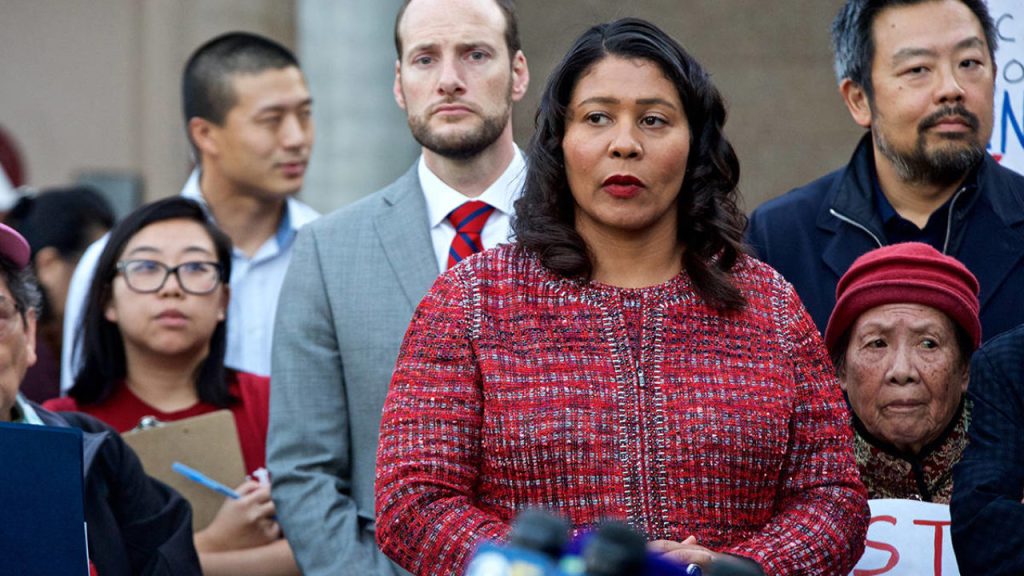The Rise of Civilian Ambassadors
The San Francisco Municipal Transportation Agency (SFMTA) recently announced job openings for Transit Ambassadors. These roles are designed to provide customer service and promote safety on public transit, aligning with Mayor Breed’s broader initiative to replace traditional law enforcement officers with civilian roles across various sectors of the city.
Ambassadors vs. Fare Inspectors: A Critical Difference
The new Transit Ambassador positions are fundamentally different from the existing role of Transit Fare Inspectors. Fare Inspectors, who hold limited peace officer powers under California Penal Code 832, have the authority to issue citations to fare evaders—a crucial function given that fare evasion has surged to over 20% of riders. This increase in fare evasion is a serious problem that significantly impacts the SFMTA’s budget, reducing the income necessary for maintaining and improving transit services.
The Dangers of Civilianization
Mayor Breed’s expansion of the civilian ambassador program presents several critical issues:
- Lack of Enforcement Power: Transit Ambassadors do not have the authority to issue citations or make arrests. Their role is limited to providing information and promoting compliance through education. This lack of enforcement power could undermine efforts to curb fare evasion, which is already a growing problem that threatens the SFMTA’s financial stability.
- Public Safety Risks: The shift towards civilianization in law enforcement roles raises serious questions about public safety. Fare Inspectors are trained to handle confrontations and enforce laws, whereas Ambassadors are primarily focused on customer service. The presence of Fare Inspectors can deter potential fare evaders and ensure a safer transit environment.
- Erosion of Law Enforcement Effectiveness: By replacing trained law enforcement officers with civilian roles, the city risks diluting the effectiveness of law enforcement efforts. Fare Inspectors not only enforce fare compliance but also play a crucial role in maintaining order and safety on public transit. Their absence could lead to increased disorder and crime.
The Broader Impact on Law Enforcement
Mayor Breed’s approach to civilianization extends beyond the transit system. This strategy reflects a broader trend in San Francisco’s law enforcement policy, where civilian roles are being prioritized over traditional law enforcement positions. This shift raises concerns about the long-term implications for public safety and the ability of law enforcement agencies to effectively perform their duties.
Tough Talk on Crime, but Do Actions Match?
Mayor Breed frequently talks tough on crime, asserting that criminals will be held accountable. However, her actions paint a different picture:
- Inaction on Sheriff’s Office Recruitment: Despite the critical need for more deputies, Mayor Breed has not taken significant steps to increase recruitment for the San Francisco Sheriff’s Office. There have been no substantial efforts to enhance the wages and bonuses for sheriff’s deputies, unlike the measures taken for the police department.
- Civilianization Over Law Enforcement: Instead of bolstering the ranks of trained law enforcement officers, Breed has focused on expanding civilian roles. This approach aligns more closely with the policies of former District Attorneys Chesa Boudin and George Gascon, who advocated for reducing traditional law enforcement in favor of civilian oversight and intervention—a stance often criticized as part of a socialist agenda.

A Call for Pro-Law Enforcement Policies
It is crucial for city leadership to prioritize effective law enforcement and public safety over the expansion of civilian roles. While the role of Transit Ambassadors can enhance customer service and community engagement, it should not come at the expense of enforcing laws and maintaining public safety. Expanding the number of Fare Inspectors, who possess the authority and training to handle fare evasion and other violations, would provide a more balanced and effective approach to managing the city’s transit system and overall public safety.
Mayor London Breed’s push for civilianization through the expansion of the Transit Ambassador program represents a significant shift in San Francisco’s approach to law enforcement. This strategy raises serious concerns about the effectiveness of fare enforcement and the broader implications for public safety. The decision to prioritize Ambassadors over Fare Inspectors could ultimately compromise the safety and security of all residents. It is essential to recognize the value of traditional law enforcement roles in maintaining order and ensuring public safety. Investing in trained law enforcement officers, rather than expanding civilian roles, is crucial for the well-being and security of San Francisco’s communities.
Mayor Breed’s tough talk on crime must be matched by actions that support and enhance law enforcement capabilities. Anything less risks aligning her more with the controversial policies of Chesa Boudin than with a genuine commitment to public safety.
